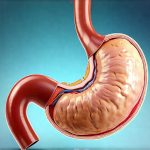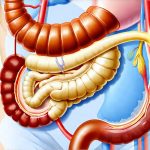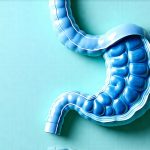Chronic fatigue is a debilitating condition affecting millions worldwide, often leaving individuals struggling with persistent exhaustion even after adequate rest. What many don’t realize is that this fatigue can be deeply intertwined with digestive issues, specifically related to how quickly the stomach empties its contents. This seemingly unrelated connection stems from the complex interplay between the gut and brain – often referred to as the gut-brain axis – where disruptions in one area can significantly impact the other. A key factor emerging in research is delayed gastric emptying (DGE), a condition where food remains in the stomach for an abnormally long time, leading to a cascade of symptoms that extend far beyond digestive discomfort.
The discomfort caused by DGE isn’t merely bloating or indigestion; it’s often accompanied by feelings of fullness, nausea, and even fatigue itself. This is because the process of digestion requires significant energy expenditure, and when food lingers in the stomach, it places a constant metabolic burden on the body. Furthermore, the altered gut microbiome associated with DGE can contribute to systemic inflammation, which is known to exacerbate chronic fatigue symptoms. Understanding this link between delayed gastric emptying and chronic fatigue provides valuable insight into potential treatment strategies that go beyond simply addressing exhaustion – focusing instead on optimizing digestive health as part of a holistic approach to wellbeing.
The Gut-Brain Connection and Chronic Fatigue
The gut and brain are in constant communication, forming a bidirectional pathway known as the gut-brain axis. This intricate network involves neural, hormonal, and immunological signaling. A healthy gut microbiome plays a vital role in this connection; it influences neurotransmitter production (like serotonin, often called the “happiness hormone”), immune function, and even cognitive processes. Dysbiosis, an imbalance in the gut bacteria, can disrupt these functions, leading to inflammation and impacting brain health. In individuals with chronic fatigue syndrome (CFS) or myalgic encephalomyelitis/chronic fatigue syndrome (ME/CFS), alterations in the gut microbiome are frequently observed, suggesting a strong link between digestive health and overall wellbeing.
Delayed gastric emptying further complicates this picture. When food isn’t processed efficiently, it leads to an overgrowth of certain bacteria in the small intestine, contributing to small intestinal bacterial overgrowth (SIBO). SIBO generates gas and toxins that can irritate the gut lining, increasing permeability (“leaky gut”) and triggering systemic inflammation. This inflammation not only exacerbates digestive symptoms but also crosses the blood-brain barrier, potentially impacting brain function and intensifying fatigue levels. The body’s immune system is constantly activated in response to these issues, further draining energy reserves and contributing to the cycle of chronic fatigue. The link between leaky gut and anxiety, panic attacks, and mood shifts is also worth noting here.
The hormonal aspect is also crucial. Delayed gastric emptying can affect hormone regulation related to appetite and satiety, leading to erratic eating patterns and nutrient deficiencies. These deficiencies, combined with inflammation, create a vicious cycle that perpetuates chronic fatigue and hinders recovery. It’s not simply about what you eat; it’s about how efficiently your body processes what you eat.
Delayed Gastric Emptying: Causes and Symptoms
Delayed gastric emptying isn’t always caused by an underlying medical condition. It can be triggered by factors like eating large meals, consuming high-fat foods, stress, or certain medications (e.g., opioids). However, in many cases, it’s associated with conditions such as diabetes, gastroparesis (a more severe form of DGE), hypothyroidism, or neurological disorders. Identifying the underlying cause is vital for effective management.
The symptoms of delayed gastric emptying are often subtle and can mimic other conditions, making diagnosis challenging. Common symptoms include: – Nausea – Vomiting – Bloating – Feeling full quickly after eating small amounts of food – Abdominal pain – Loss of appetite – Heartburn – Changes in blood sugar levels (particularly problematic for individuals with diabetes) – Post-meal fatigue – a significant drop in energy levels shortly after eating. This post-meal discomfort can be particularly pronounced and is often a key indicator of DGE in chronic fatigue sufferers. The impact of histamine intolerance on stomach discomfort should also be considered.
The impact on daily life can be substantial, leading to social withdrawal, reduced productivity, and decreased quality of life. Moreover, the constant digestive distress can contribute to anxiety and depression, further compounding the challenges faced by individuals with chronic fatigue. It’s essential to remember that these symptoms aren’t just “in your head”; they are a physiological response to an impaired digestive process.
Diagnosing Delayed Gastric Emptying
Accurately diagnosing delayed gastric emptying requires a comprehensive evaluation conducted by a healthcare professional. The gold standard for diagnosis is the gastric emptying study (GES), also known as a four-hour solid food test. This involves consuming a meal containing radioactive material, and then using a scan to measure how quickly the stomach empties its contents over a period of time. However, GES can be expensive and doesn’t always accurately reflect real-world eating habits.
Other diagnostic tools include: – Breath tests: To detect SIBO, which often co-exists with DGE. – Blood tests: To rule out underlying conditions like diabetes or hypothyroidism. – Upper endoscopy: To assess the stomach lining for any structural abnormalities. – Symptom diaries: Tracking food intake and associated symptoms can provide valuable information to your doctor.
It’s important to note that a diagnosis of delayed gastric emptying doesn’t necessarily pinpoint the cause. Further investigation may be needed to determine whether it’s related to an underlying medical condition, lifestyle factors, or medication side effects. A collaborative approach between the patient and healthcare team is crucial for accurate diagnosis and personalized treatment planning.
Lifestyle Modifications and Dietary Strategies
For many individuals with mild to moderate delayed gastric emptying, lifestyle modifications and dietary changes can significantly alleviate symptoms. These include: – Eating smaller, more frequent meals – Avoiding high-fat foods – Limiting carbonated beverages – Staying hydrated – Chewing food thoroughly – Managing stress.
Specific dietary strategies may also be beneficial. Some individuals find relief by following a low-FODMAP diet, which limits fermentable carbohydrates that can exacerbate SIBO. Others benefit from increasing their fiber intake (gradually) to promote gut motility. However, it’s important to work with a registered dietitian or nutritionist to develop a personalized dietary plan that addresses your individual needs and tolerances. Probiotics – beneficial bacteria – may help restore balance to the gut microbiome, but choosing the right strain is crucial; consult with a healthcare professional for guidance. The connection between candida overgrowth and chronic bloating should also be considered when evaluating dietary strategies.
Emerging Therapies and Future Research
While lifestyle modifications and dietary changes are often effective for managing mild to moderate DGE, more advanced therapies may be necessary for severe cases or when underlying medical conditions contribute to the problem. Prokinetic agents – medications that help speed up gastric emptying – can be prescribed by a doctor, but they often come with side effects.
Research into novel treatments for delayed gastric emptying and its link to chronic fatigue is ongoing. This includes exploring the potential of gut-directed hypnotherapy, which uses techniques to calm the nervous system and improve digestive function, as well as investigating the role of specific nutrients in supporting gut health and reducing inflammation. Furthermore, understanding the precise mechanisms by which DGE impacts brain function is critical for developing targeted therapies that address both the physical and neurological aspects of chronic fatigue. The link between seafood and digestive discomfort should also be investigated if dietary interventions are not successful. Also, exploring the link between gut microbiota and IBS can offer insights into potential therapies. The future holds promise for more effective and personalized approaches to managing this complex condition and restoring wellbeing to those affected by it.


















